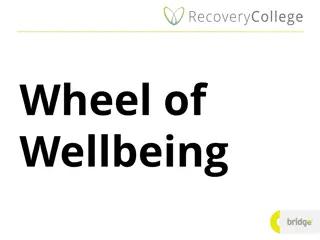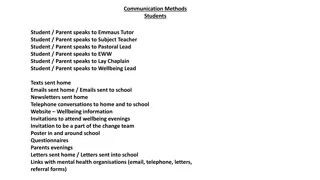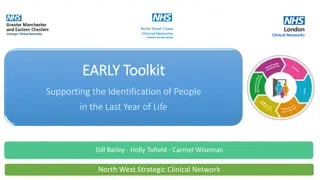
Workplace Wellbeing and Mental Health Tips
Explore the importance of workplace wellbeing, learn how to improve mental health at work, and discover six practical steps to boost overall well-being. Enhance your work environment for long-term effectiveness and personal growth.
Download Presentation

Please find below an Image/Link to download the presentation.
The content on the website is provided AS IS for your information and personal use only. It may not be sold, licensed, or shared on other websites without obtaining consent from the author. If you encounter any issues during the download, it is possible that the publisher has removed the file from their server.
You are allowed to download the files provided on this website for personal or commercial use, subject to the condition that they are used lawfully. All files are the property of their respective owners.
The content on the website is provided AS IS for your information and personal use only. It may not be sold, licensed, or shared on other websites without obtaining consent from the author.
E N D
Presentation Transcript
Wellbeing toolkit 2020 EMPLOYABILITY SKILLS
What is workplace wellbeing? Workplace Wellbeing relates to all aspects of working life, from the quality and safety of the physical environment, to how workers feel about their work, their working environment, the climate at work and work organization. Workers well-being is a key factor in determining an organization's long-term effectiveness.
Six steps to improving mental wellbeing at work 1. Identify your triggers Working out what triggers stress or poor mental health can help you anticipate problems and think of ways to solve them, says mental health charity Mind. 2. Manage your hours Managing when and where you work can be helpful, says Rachel Farr, senior professional support lawyer at Taylor Wessing. Since 2014, all employees (not just parents and carers) have had the right to request flexible working for any reason, and this can include switching your shifts, working different hours and sometimes working from home. 3. Switch off Unlike in France where employees have the right to disconnect, in the UK many people feel they can t switch off, which can be detrimental to mental health. 4. Talk about it It can be difficult for people to open up about mental health concerns, but fortunately some companies are taking steps to encourage discussions about the topic. 5. Eat, sleep, exercise When you re not at work, pack in plenty of healthy food, sleep and exercise, says Oxley. It s well known that these can all boost our mental and physical health, but being outdoors can also help, he says. 6. Don t be too hard on yourself Many people have demanding jobs and when you re caught up in an exhausting cycle of relentless hours, it s easy to be hard on yourself.
Wellbeing Double Click TO Play Video
Thank you! HAVE A LOVELY AFTERNOON






















